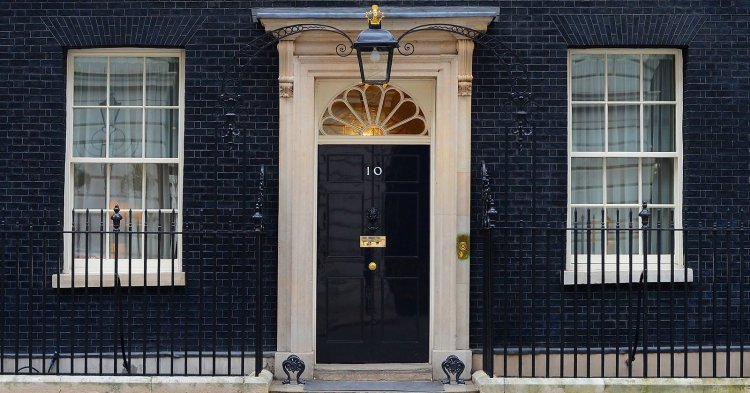The race to be UK’s next Prime Minister is now down to 2- Liz Truss, the current Foreign Secretary and the former Chancellor Rishi Sunak, whose resignation led to the start of backlash and the ultimate fall of Boris Johnson as the PM. The final two candidates will be trying to convince Tory party members to back them at hustings events around the country between 28 July and 31 August. The ballot will close at 17:00 BST on 2 September. The next PM will be announced on September 6. The agendas of both the leaders have been set out to the public- with focus on tax cuts, leveraging a green economy and both at the same time more than ever enthusiastic at scrapping the remaining EU laws - something to cheer for, at least for some Eurosceptic media.
Liz Truss appears to be the favourite to replace Boris Johnson as the next PM, riding high on her promise of billions of pounds of tax cuts, setting targets for reducing carbon dioxide emissions and leveraging green growth and continuing the undeterred stance of the UK on the Ukraine War. Recent polls from the 4th of August suggest that her lead over Rishi Sunak has increased significantly (87 percent chances of Truss becoming the next PM) and chances are likely that come September 6, the 3rd ever woman will be sworn in as the next UK Prime Minister. Truss’s tax cut promises come at a time when the UK economy has become stagnant and inflation has been at an all time high in recent decades along with a significant increase in public distrust towards the government in particular. Critics have lashed out at her, stating her campaign is being run on grounds of populism and that she is simply saying what the public wants to hear, rather than having a pragmatic approach to solving the challenges home and abroad. Another significant aspect would be the approach to international affairs and anchoring the UK’s relations with the EU.
Foreign Policy Implications and Relations with the EU
Once a Remainer and now a strong Brexiteer, Truss’s approaches embody a Reaganite style where UK continues to remain a faithful ally of America and a sharp critic of China and Russia. In terms of UK’s relation with the EU, it is highly unlikely that Truss would not go ahead with Johnson’s approach of no compromise with Brussels. She also seeks to scrap the remaining EU laws that the UK still holds adherence to, echoing the phrase: ‘‘The destiny of the UK is in the hands of the people.’’ Her spearheading of the Northern Ireland Protocol Bill also prompted legal actions by the EU. She remains adamant that post-Brexit freedom would help in unleashing economic growth by stimulating opportunities that are UK-centric and for the British people. Truss’s promise to scrap all of the remaining EU Laws by 2023 earlier than her contender has claimed to do so, remains a promise only on paper as the UK continues to struggle economically as its population mediates with high taxes and a frivolous job market, made only more complicated by Brexit. Truss’s bid for the leadership has garnered popular support, especially among her ex-rivals such as Penny Mordaunt and others within the tory camp, which is largely seen to be Eurosceptic, a sharp contrast to how the majority of the Brits is feeling at the moment.
On issues such as Russia-Ukraine War and China, Truss maintains that the UK’s stance on the matter would remain the same and that the UK would not directly get involved in the war. She, like her rival, has echoed the chants of an increased defence expenditure, to avert any possible future Russian aggression on its soil or that of its NATO allies, only to be overshadowed by a proper blueprint to achieve the same. On the issue of China, Liz Truss appears to be hard on China and its ways and measures, calling for a clampdown on the Chinese tech companies such as TikTok, in her stance of regulating tech companies hailing from authoritarian regimes. She also lashed out at Sunak, for trying hard to broker an economic deal with China. In contrast, her present actions and views appear outlandish, given her role in helping to set up the Confucius Institutes in the UK. Liz Truss oversaw the signing of a memorandum of understanding between University College London’s education faculty and Hanban, a wing of China’s education ministry in 2014. She was serving as the education secretary at that time. In the wake of the China-Taiwan Crisis, Truss called the Chinese actions of military drills near Taiwan to be inflammatory and called for immediate de-escalation, commenting that China’s invasion of Taiwan would be “catastrophic.”
Rallying on popular support for her stand on tax cuts, the economy and the Ukraine War, among others, Truss, has a very high chance of being the next PM, hailed as a true “conservative” by her party peers. What remains to be seen however is for how long can Truss hold onto the strings of the conservative party leadership, which in the recent decade has often been in a crisis and conflict regarding the right person to lead them forward?

1. On 15 August 2022 at 17:03, by Harjeet Singh Replying to: Race to 10 Downing Street: How the next Reaganite could further deter relations with the EU
Replying to: Race to 10 Downing Street: How the next Reaganite could further deter relations with the EU
Great insight over the political chaos in the United Kingdom
Follow the comments: |
|
